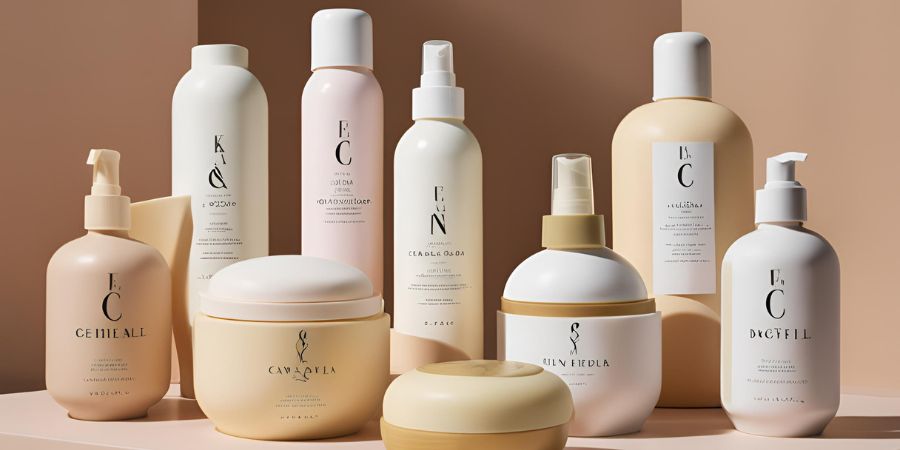The world of fashion is renowned for its constant innovation and flair. But have you ever wondered whether some of the biggest names in fashion have expanded their empires into the realm of hair care? With the ever-evolving beauty industry, it’s becoming more common for fashion designers to delve into hair care, blending their creativity and brand identity into this complementary sector.
The Connection Between Fashion and Beauty
Fashion and beauty have always been intertwined. A perfectly styled outfit is often complemented by flawless hair and makeup, creating a complete look that embodies style and elegance. Designers understand this symbiosis and recognize the opportunity to extend their influence into other areas of personal expression. Hair care, in particular, is a natural extension of the fashion industry’s ethos of self-expression and individuality.
Why Do Fashion Designers Create Hair Care Lines?
Several reasons drive fashion designers to launch their own hair care lines:
1. Brand Extension
Designers see hair care as a way to diversify their portfolios and broaden their brand appeal. By entering the beauty market, they reach consumers who might not purchase luxury apparel but are drawn to the designer’s name and aesthetic through more affordable products like shampoos, conditioners, and styling tools.
2. Holistic Lifestyle Branding
Many luxury fashion houses aim to create a lifestyle brand that encompasses every aspect of their customers’ lives. From clothing and accessories to fragrances and now hair care, these products help convey the brand’s identity in a cohesive way.
3. Demand for Luxury Hair Care
The hair care market is booming, with consumers seeking high-quality, premium products tailored to their specific needs. Fashion designers can cater to this demand by leveraging their expertise in luxury and quality craftsmanship to develop standout hair care lines.
4. Celebrity Influence and Visibility
Celebrities often serve as the bridge between fashion and beauty. Designers capitalize on their collaborations with celebrity ambassadors, stylists, and influencers to promote their hair care products alongside their fashion lines, ensuring visibility across both markets.
Notable Fashion Designers With Hair Care Lines
Let’s delve into some iconic fashion designers who have made waves in the hair care industry.
1. Oribe by Oribe Canales
Although not a traditional fashion designer, Oribe Canales was a celebrated hair stylist who collaborated with luxury brands like Chanel and Versace. His eponymous hair care line, Oribe, reflects his high-fashion background. Known for its luxurious formulas and sleek packaging, Oribe’s products have become a staple in salons and among celebrities.
2. R+Co by Howard McLaren
Howard McLaren, a former creative director at Toni & Guy and Bumble and Bumble, created R+Co in collaboration with a team of renowned stylists. Though primarily a haircare expert, McLaren’s products reflect a designer’s attention to detail, from the innovative formulas to the stylish, fashion-inspired packaging.
3. Karl Lagerfeld and Schwarzkopf Collaboration
Karl Lagerfeld, the late creative genius behind Chanel and Fendi, partnered with Schwarzkopf to launch a limited-edition hair care line. Combining Lagerfeld’s iconic aesthetic with Schwarzkopf’s hair care expertise, the collaboration offered products that exuded elegance and sophistication.
4. Tom Ford and Grooming Essentials
While Tom Ford is primarily known for his stunning apparel and fragrances, his foray into grooming and hair care is a testament to his understanding of modern luxury. His hair care products, infused with rich scents and premium ingredients, cater to those seeking high-end grooming solutions.
Key Features of Designer Hair Care Lines
Fashion designers bring a unique perspective to hair care, often introducing elements that set their lines apart from traditional hair care brands.
1. Premium Ingredients
Designer hair care lines frequently use high-quality, natural ingredients to appeal to discerning customers. These formulas often include rare botanicals, oils, and other luxurious components.
2. Aesthetic Packaging
Packaging plays a crucial role in the allure of designer hair care products. Sleek, elegant designs that mirror the brand’s fashion identity are common, making these products desirable for their functionality and visual appeal.
3. Personalized Solutions
Many designer hair care lines focus on creating products tailored to specific hair types or concerns, offering personalized solutions that cater to a wide range of consumers.
4. Fashionable Marketing
Fashion brands leverage their runway shows, celebrity endorsements, and social media campaigns to market their hair care products. This approach ensures their lines are as trendy and aspirational as their clothing collections.
Impact on the Fashion and Beauty Industries
The intersection of fashion and hair care has had a profound impact on both industries:
1. Boosting Brand Loyalty
For fashion designers, venturing into hair care allows them to deepen their relationship with customers. A loyal customer who loves a designer’s apparel is likely to trust and invest in their beauty products.
2. Expanding Market Reach
Designer hair care lines often target a wider audience than their luxury fashion counterparts. This diversification helps brands stay relevant and profitable, even during economic downturns when consumers may cut back on apparel spending but still indulge in beauty products.
3. Raising Standards in Hair Care
With their emphasis on luxury, innovation, and quality, designer hair care lines have raised the bar in the beauty industry. They encourage other brands to innovate and improve their offerings to remain competitive.
4. Blurring Industry Boundaries
As fashion designers expand into beauty, the lines between the two industries continue to blur, fostering collaborations and creative exchanges that benefit both sectors.
Challenges in Launching Hair Care Lines
While many fashion designers have successfully entered the hair care market, the journey is not without challenges:
1. High Competition
The beauty industry is highly saturated, with countless brands vying for consumer attention. Standing out requires a unique selling proposition and a strong marketing strategy.
2. Maintaining Authenticity
To succeed, designers must ensure their hair care products align with their brand’s identity. Consumers can easily detect when a product feels inauthentic or disconnected from a brand’s core values.
3. Complex Product Development
Creating effective hair care products requires significant research and development. Designers must partner with experienced chemists and manufacturers to ensure their products deliver on quality and performance.
FAQs
Do fashion designers wear their own brands?
Yes, many fashion designers wear their own brands to represent their style and vision, promote their designs, and showcase their creativity. However, some prefer to mix their own pieces with other designers’ creations to create unique looks.
Do fashion designers make their own designs?
Fashion designers conceptualize and create their own designs, often sketching ideas and collaborating with patternmakers and seamstresses to bring their visions to life. However, larger brands may have design teams that contribute to the creative process under the designer’s direction.
Is fashion part of cosmetology?
Fashion and cosmetology are related but distinct fields. Fashion focuses on clothing and accessories, while cosmetology deals with beauty treatments, including hair, makeup, and skincare. Both industries intersect, especially in styling and creating cohesive looks for events or photoshoots.
Do fashion designers work alone?
Fashion designers rarely work entirely alone. They collaborate with teams, including patternmakers, seamstresses, stylists, marketers, and manufacturers, to bring their designs to life. Solo designers may handle multiple roles but often require support as their brand grows.
What not to do as a fashion designer?
- Avoid copying designs: Originality is key in fashion.
- Don’t ignore trends: Staying updated is crucial to remaining relevant.
- Don’t neglect feedback: Listening to clients and collaborators improves designs.
- Avoid low-quality materials: Quality reflects your brand’s reputation.
- Don’t overpromise: Meet deadlines and maintain realistic commitments.
Who is the best fashion designer in the world?
Determining the “best” fashion designer is subjective and depends on personal taste. Icons like Coco Chanel, Giorgio Armani, Karl Lagerfeld, and contemporary stars like Virgil Abloh and Gucci’s Alessandro Michele are often celebrated for their impact on fashion.
Conclusion
Fashion designers have increasingly made their mark on the hair care industry, blending luxury, innovation, and style to create products that resonate with consumers. From Karl Lagerfeld’s sleek collaborations to Oribe’s high-fashion formulations, these ventures showcase the natural synergy between fashion and beauty. As more designers embrace this trend, the boundaries between the two industries will continue to blur, offering consumers an ever-expanding array of stylish and effective hair care options. Whether you’re a fashion enthusiast or a beauty aficionado, the intersection of these worlds offers something truly inspiring for everyone.

